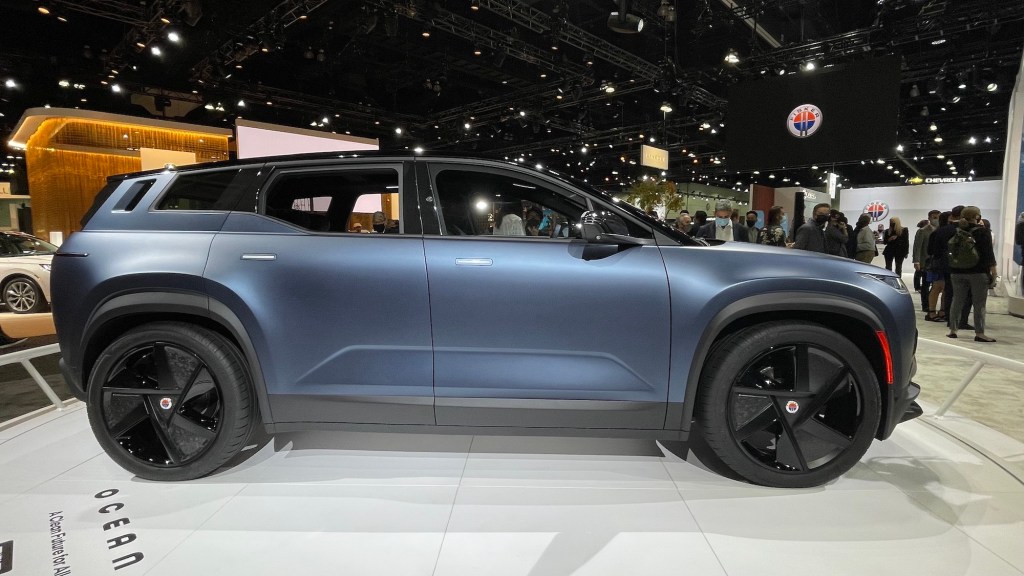
EV startup Fisker is pausing production of its electric Ocean SUV for six weeks as it scrambles for a cash infusion.
The company said in a Monday morning regulatory filing that it had just $121 million in cash and cash equivalents as of March 15th, $32 million of which is restricted or not immediately accessible. Fisker also said Monday that its accounts payable balance is up to $182 million and that there is “substantial doubt” that it can continue operations without raising new capital, after saying in February that it was likely to issue such a warning.
The filing comes at a troubling moment for the startup, which went public in 2020 when it merged with a special purpose acquisition company. Fisker started shipping the Ocean SUV in the U.S. and Europe in the middle of 2023, but the rollout has been plagued by problematic software and lackluster customer service, as TechCrunch recently reported. The National Highway Traffic Safety Administration is investigating the Ocean for rollaway problems and issues with the braking system. Fisker announced in February it was laying off 15% of its staff, or around 200 people.
Fisker finished 2023 having shipped roughly 5,000 of the 10,000 cars that its contract manufacturing partner, Magna Steyr, produced. The company said Monday that it delivered 1,300 vehicles in January and February and still has roughly 5,000 in inventory in the U.S. and Europe.
It’s currently trying to pivot away from a direct sales model in favor of dealer partnerships, though at least one of the first dozen-or-so early dealer partners has already walked away from the startup. The Wall Street Journal reported last week that it has hired restructuring advisers to evaluate a potential bankruptcy filing.
Relief could be difficult to come by. Automotive manufacturing is incredibly expensive, even for a company like Fisker, which is outsourcing much of the work to suppliers like Magna. Fisker ended 2023 with $326 million in cash, and even though Magna produced zero cars in January and only 1,000 since February 1 — figures Fisker shared for the first time on Monday morning — it still drained its cash reserves by around $200 million across the last 11 weeks.
Fisker said Monday that it remains in negotiations with an automaker about a potential partnership that could bring an investment; Reuters has reported that this automaker is Nissan. In the near-term, Fisker said Monday it is trying to raise $150 million through the sale of convertible notes. That deal, with an undisclosed investor, is not final and the funds will be released in $35 million tranches that are subject to a number of conditions.
At the same time, Fisker announced that it is late in filing its annual results for 2023, including missing the 15-day extension period from the SEC that expired March 15. That has triggered a default in one of the company’s other convertible notes. While Fisker says the investor behind those notes has waived the default, the investor can still convert the amount remaining on the note — which as of late January was more than $300 million — into shares.



